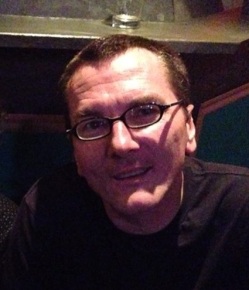
Buerger Energie Berlin’s Steffen Walter.
Photo courtesy: krytykapolityczna.pl
A group of Berlin citizens is trying to do something that has never been done on a grand scale before.
Buerger Energie Berlin is a co-op of about 700 members who are bidding for the rights to own and operate the city’s electricity grid, which supplies about 2.5 million homes.
Although some smaller co-ops have taken control of the grids in small towns around Germany, including at Schoenau which now runs its own electricity utility, never before has a bid been made for such a large take-over. The new 20-year contract for Berlin’s grid is up for grabs at the end of next year.
While success is a long shot it is the sentiment that is proving to be making the difference, showing that community groups have not only the desire but the impetus to take on big organisations and big tasks.
The co-op estimates it will need about €200 million to be a serious contender and has already collected around €8 million from contributions by the 700-odd members who all paid €500 each.
Buerger Energie also has more than 1000 people who are considered supporters because the money they have contributed will be refunded if the bid to buy the grid fails. Sustainable banks are considering helping to finance the operation.
While a Dutch municipal group Alliander looks to be the strongest contender, Buerger Energie is hoping to acquire even a share in the grid – ideally 49 per cent – if it cannot buy the whole thing.
It also hopes that the current owner Vattenfall, a Swedish state company that has interests in fossil fuel, will not be successful.
The Berlin grid has 35,000km of powerlines – mostly underground – and is valued at about €1 billion.
The response to the bid has been varied.
“It’s mixed,” says Steffen Walter, who has been with the co-op since the early days and was one of the 30 founding members.
“They say it’s ok that a player comes from outside and just redefines the boundary of what’s possible, to shake the old processes up a bit.
“On the other side, the process might get too restrictive for us to remain in the running until the end.
“We don’t know if our government will remain will be flexible enough to really (do it). In the governing coalition there are mixed feelings about it. The social democrats are more open to us, to a co-operative interest; the Christian Democrats they are rather reluctant. There are disputes and debates going on within the governing coalition.”
The biggest hurdle right now, with about a year until the decision is made, is to determine exactly how the co-op plans to operate its business and find the experts needed to make it all possible.
“We are an initiative with roots in NGOs. We are not energy experts. We need partners with expertise. We need technical expertise. We are not the grid experts,” Walter says.
Buerger Energie also wants to promote renewable energy either through generation or supply but that would require forming a separate legal entity. There are already about 800 renewable energy organisations in Gemany. Unfortunately many relied on the high feed-in tariff – it started just below €1 euro, but has fallen to around 12 cents and is too low for many projects to be viable.
Now the time has come where co-ops are realising that integrating with the grid is the key to success.
“We want to promote anything to do with a transition to renewables,” Walter says.
“We need to take this one step further – from a strategic point of view it’s not only useful to operate your own power plants or wind power, but to own the grid and modify the grid to prepare it for renewables, to adjust it to the needs of renewables, by integrating storage. A lot of things you can do on a micro level.”
Walter says teaming up with housing co-operatives could be the vital link that makes community owned renewables realistic for more and more people.
“One idea is to go into renewable generation together with housing co-operatives because there is a huge unused potential in Berlin,” Walter says.
“In terms of consumption, or generation, it is only 2 per cent. There are hundreds of thousands of roofs that could be used for solar. There is a lot to be done in Berlin.”
Combined heat and power is another avenue that is garnering support. One co-operative in Berlin that has done that. They converted a former kindergarten to a residential building to about 30 or 40 units. All those people are members of the housing co-operative. They then set up a second co-operative to generate electricity for exclusive use of the members of the housing scheme. They included all the people living there and put a big solar system on the roof. It is split consumption. Some of the electricity is used by the building and part earns money from the feed-in tariff.
Community renewable co-operatives are being developed in different forms to combat legislative and regulatory change and limitations.
Walter says this is the only way the transition to renewables can work without adequate government support.
“There is not clear strategy to push that forward from the government,” he says. “It needs pressure from the bottom.”
http://www.buerger-energie-berlin.de/
 Craig Morris is one of those people whose name keeps coming up every time I interview someone new. He’s an energy journalist and has his finger on the pulse more than most.
Craig Morris is one of those people whose name keeps coming up every time I interview someone new. He’s an energy journalist and has his finger on the pulse more than most.



